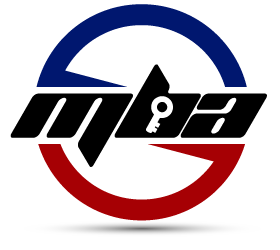In this episode, author and speaker Jen Shirkani helps us to understand the importance of Emotional Intelligence and shares techniques to boost your EQ.
After listening to this episode, you'll understand:
- What emotional intelligence (EQ) is and how it differs from IQ
- Why emotional intelligence is so important
- What happens when you have low EQ
- How to grow your emotional intelligence
Show Notes
Unlike IQ, Emotional Intelligence (your Intelligence Quotient or EQ) is something you can learn and develop. Studies show that emotional intelligence is a much better predictor of success than IQ.
There are three elements to emotional intelligence.
- The ability to recognize yourself: You know how you’re wired and you have an awareness of your emotions and how they affect your behavior. This allows you to put yourself in situations that bring out your best and better control your responses in difficult situations.
- The ability to read others: You have situational awareness and can sense the mood of others without them saying anything. Being able to read people can help you better understand the context and adjust your approach.
- Respond appropriately: Being able to recognize your own feelings and having the situational awareness to be able to read others gives you the ability to adapt your approach and respond appropriately in the context of the situation.
The Impact of Low EQ
Teams with individuals that lack EQ tend to have more unhealthy conflict. People can become isolated and there is less collaboration. Developing the adaptability and consistency that comes with emotional intelligence also leads to building trust.
When leaders lack EQ, we often see issues with low engagement levels and employee retention, which leads to high turnover and lower productivity.
There needs to be a balance between the three components of emotional intelligence. Without self-awareness, you tend to self-sacrifice and can’t say no tactfully. Without situational awareness, it will be difficult to build and maintain relationships. Even if you have these two levels of awareness, you need to be able to use that information to adapt and respond appropriately.
How to Build Self-Awareness
You can develop your emotional intelligence in several ways. After taking a test to gauge your EQ, start with your self-awareness. We start there because it’s difficult to change your behavior if you’re not aware of what you’re doing or why.
It helps to take a personality assessment and communication assessment to understand your preferences and how you’re wired.
From there, self-reflection helps you to better understand your behaviors and reactions. Take time out to reflect on past situations and your responses to discover the ‘why’ behind your behavior. Having some downtime between meetings can help you reflect and refresh so that you’re ready for the next interaction.
How to Build Situational Awareness
To improve your situational awareness, it helps to slow down and listen to understand. We often get so caught up in our own agendas and what we’re going to say next that we forget to listen.
Developing a natural curiosity and asking questions to understand helps you to slow down and truly understand others. It also allows you to understand and appreciate their perspective even if you don’t agree with it.
Active listening skills such as paraphrasing also helps ensure you correctly understand the other person.
You can also develop your awareness of body language by observing crowds or watching television with the sound off and trying to understand what others are feeling.
Higher stress levels may reduce our self-control, so finding ways to reduce stress will also help us to control our response, tune in to the situation, and select an appropriate response.
By raising your emotional intelligence, you’ll be able to develop stronger relationships, better collaborate, and be seen as someone others want to work with.
Listen to the full episode to discover more approaches to improving your EQ and how the need for emotional intelligence changes as you move to higher levels of leadership.
Your Homework
Take a self-assessment to get a baseline for your emotional intelligence. That will help you understand which areas to develop first.
Also, at the end of the day, reflect back on your interactions with others and ask yourself how they would rate your behavior today.
Links mentioned in this episode:
- Jen’s website JenShirkani.com
- Get Jen’s books on Amazon

Jen Shirkani
Jen Shirkani is a leading expert on emotional intelligence and has been a featured speaker at several conferences. She’s also the author of two books on emotional intelligence and frequently speaks and writes about workplace challenges including: interviewing, employee engagement and motivation, generational differences, and coaching.
Thank you for listening to the program
To get more valuable content to enhance your skills and advance your career, you can subscribe on iTunes and other podcatchers.
Also, reviews on iTunes are highly appreciated! I read each review and it helps keep me motivated to continue to bring you valuable content each week.








Prompted by the podcast, and wanting to take a fresh look at my own EQ, I tracked down (via internet search) the following assessments that appear to be credible:
1) Via https://www.goodtherapy.org/emotional-intelligence.html from https://www.linkedin.com/company/plumeus-inc./ 146 detailed questions. The assessment only provides a single numerical result for free. Pay US$9.95 for an extensive test results report–I did that, and I found valuable for guiding my further investment in self-improvement.
2) A simpler totally free 46 binary question assessment http://globalleadershipfoundation.com/geit/eitest.html; however, results are limited to ‘x’/10 for four described quadrants. Limited insight compared to #1.
3) Psychology Tools https://psychology-tools.com/empathy-quotient/ has an Empathy Quotient (so narrower focus than Emotional Quotient) 60-item questionnaire developed by Simon Baron-Cohen at ARC, the Autism Research Centre at the University of Cambridge: https://www.autismresearchcentre.com/arc_tests — with many other assessments at this page. Result is a single numerical score out of a possible 80, where above 30 is generally not indicative of Autism Spectrum disorder.
4) From Harvard Business Review (HBR) https://hbr.org/2015/06/quiz-yourself-do-you-lead-with-emotional-intelligence 25 simplistic questions. Scoring is based on five “EI competencies”. Extensive resources provided with the results.
5) Narrow focus, but interesting, is https://greatergood.berkeley.edu/quizzes/ei_quiz a 20 question visual emotion-reading assessment.
6) Lastly, University of Central Florida http://sciences.ucf.edu/psychology/myemotions-hxus/ offers eleven separate assessments related to emotions. I haven’t explored yet; however, looks like it is worthy of further investment.
Enjoy.
Ray
Thanks for sharing these great resources, Ray.